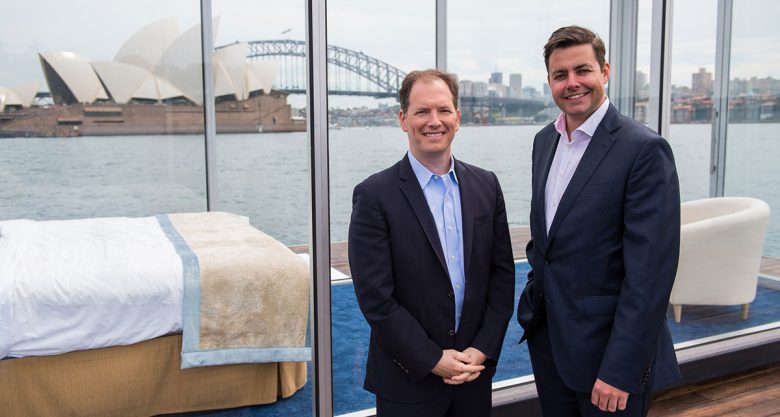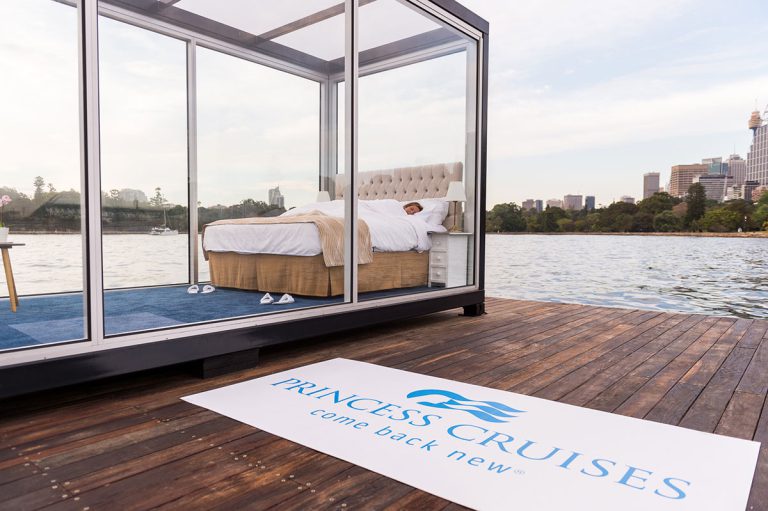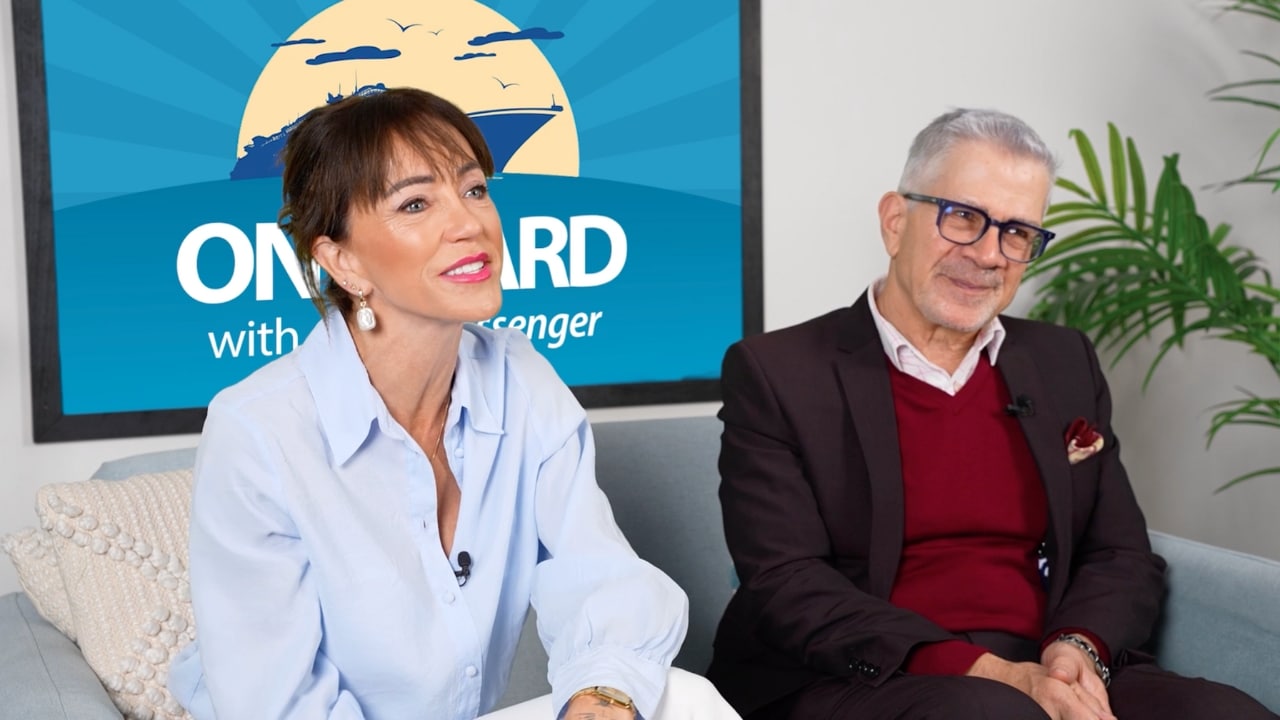‘I need a vacation from my vacation’ is a common feeling among travellers. Dr Michael Breuss who has partnered with Princess Cruises, says it comes down to the quality of sleep.
Dr Breuss’ partnership with Princess Cruises started two years ago when the line approached him to create a special bed and sleeping program for its guests.
“I’ve created unique beds for Princess and they have a complete purpose. A bed on a cruise ship is not just for sleep or sex – it’s the largest piece of furniture in the stateroom so lots of people use to sit, relax, play games and hang out. So we created a bed that’s structurally sound, that could cater for all different types of activities.
“Also, everyone has different preferences for their mattresses. Some people like their beds hard while others like them soft. We’ve created a removable soft top for those who like a more cushioned sleep. I personally looked at the material choice and making sure the mattress would be temperature specific to individual needs. The beds have been so successful that people wanted to buy them as they were stepping off their cruise. We started selling them in the United States and they sold out within the first month.”
 Dr Breuss has also developed a program for Princess Cruises’ guests that will help them sleep better on their holiday.
Dr Breuss has also developed a program for Princess Cruises’ guests that will help them sleep better on their holiday.
“Holidays represent an interesting time. Most people try to not to stress out and catch up on sleep. Our goal at Princess is to make sure the guests are not tired by the end of their holiday.
“We wanted to create an environment which was conducive to good sleep for guests. We even can teach people how to sleep. Next to every bed in every stateroom is a sleep program as well as channel on Princess Cruises’ television where I answer the top 15 questions people have when it comes to getting the best sleep on their holiday.”
But Dr Breuss said that even being on a cruise ship will even help you get a better night’s sleep.
“Studies have shown that a gentle rocking does encourage sleep and the sound of the ocean also encourages a better night’s shut eye. So the motion of the ocean really does work for the best kind of rest.”
 Here are Dr Breuss’ top tips:
Here are Dr Breuss’ top tips:
1. Get a good rest the night before you travel: Pack early so you don’t have last minute stress. There is research showing that most people lose sleep before travel, and if you’re about to begin a fly-cruise holiday this can make jet lag worse.
2. Adopt a consistent sleep-wake schedule: When it comes to sleep, it’s best not to take a “holiday” from a routine schedule. Set a reasonable sleep schedule for yourself, using local time — include both bedtimes and wake times. Plan for roughly the same amount of sleep you get at home — no more, no less. Keeping to a consistent sleep routine doesn’t mean you have to say no to fun while you’re traveling. There’s room for late-night dinners and early-morning excursions if you stick to a sleep-wake schedule that’s consistent.
3. Don’t overindulge in food and drink: Travel often goes hand-in-hand with indulgence when it comes to food and drink — it’s a fun part of the travel experience. By all means, enjoy the eating and drinking experiences that come with your journey – treat yourself, but don’t go overboard.
• Alcohol may help you fall asleep more quickly, but alcohol consumption too close to bedtime can lead to shallow, restless sleep. Do your best to keep alcohol consumption moderate. If you can, alternate each alcoholic drink with a glass of water.
4. Eat at the right time: Hunger can keep you from falling asleep and staying asleep, but eating heavily close to bedtime can interfere with both the quality and quantity of your rest.
5. Stop drinking caffeine at 2pm: Manage your caffeine consumption as you would at home. Avoid drinking caffeine within 8 hours of bedtime (usually by 2pmlocal time), and drink caffeine in moderation during the day (170 to 230ml). If you’re not a regular caffeine consumer, your trip is not a time to start—you don’t want to be surprised by sleepless nights.
6. Be physically active: Staying active can help speed the transition of your body clock and make you more prepared to sleep at your new bedtime. Your trip is not the time to begin a new and intense exercise regimen, but look to stay physically active throughout your travels in ways you’re used to. Avoid exercise within three to four hours before bedtime as it can stimulate the mind and energise the body in ways that interfere with sleep.
7. Unwind before bed: Choose a relaxing activity, such as taking a warm bath or reading a book, to put you into sleep mode. If you read, choose an old-fashioned book instead of an e-reader as some e-readers emit light that can stimulate your brain and keep you awake. Skip TV and computer games before bedtime as well — those activities can also be too stimulating. Tune into the SLEEP channel for peaceful ocean sounds proven to help lull you to sleep, but remember to set the timer so the TV doesn’t wake you up later.









